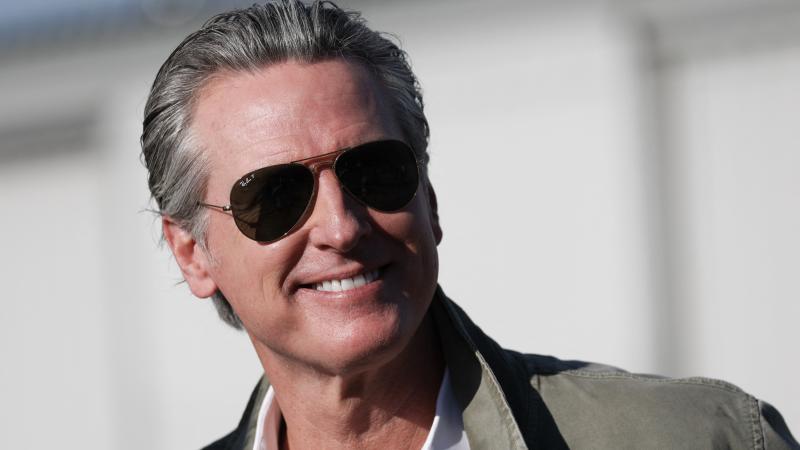48% of voters believe businesses can decide whether their customers must wear masks

Forty-eight percent (48%) of voters believe private businesses should be allowed to decide whether or not their customers are required to wear masks. A Ballotpedia survey found that 47% disagree and 5% are not sure. There is a strong partisan divide on this question.
Full transcript:
Scott Rasmussen 0:07
Hey there, Scott Rasmussen here. Welcome to my podcast, Scott Rasmussen's Number of the Day. Now, this happens to be the inaugural edition, the very first time we've done this podcast. So I want to take a moment and explain, you know, what we're trying to accomplish and what you can expect. For the past three years or so I've been writing a number of the day for Ballotpedia: The Encyclopedia of American Politics. Every weekday morning, I pick an interesting number, at least one that I think is interesting, and I use it to explore the world around us maybe to define it a little bit, maybe to help us see things in a little bit different way. I'm excited today that with our friends at Just the News.com, we're expanding this into the podcast format. Same idea though. We're going to focus on a number of the day and then use it to explore the world around us.
Scott Rasmussen 0:58
So today, I'm going to pick a number that has to do with the Coronavirus pandemic or the way that we're responding to it, the way we think we should be responding to it. I'm going to combine it with some lessons from Pixar, the movie studio that gave us Monsters Inc. and Toy Story and The Incredibles and so many other amazing movies. When we combine these things, we hope to learn something, at least I hope that you'll learn something about why Republicans and Democrats can look at the same thing and have entirely opposite perceptions of what's going on. So the number of the day comes from a polling question that I asked for Ballotpedia recently, it's to business owners have the right to determine whether or not their customers should be required to wear masks, business owners, should they be allowed to make that decision? 48 is the number of the day 48% of voters nationwide say yes, they should. And I'll be back to talk more about that. Right after these messages.
Scott Rasmussen 2:02
Welcome back to Scott Rasmussen's Number of the Day. And today, our first edition we're exploring the number 48. 48% of voters nationwide, say that businesses should be allowed to determine whether or not their customers have to wear masks. Now 47% By the way, take the opposite view and disagree. 5% aren't sure. The fact that the country is evenly divided on a question like this may be a little bit interesting, but I think what makes it more revealing is the fact that there is a fairly typical partisan divide... two thirds of Republicans 64% say of course, a business owner should have the right to decide, that they should make the decisions about what happens in their own building. But 57% of Democrats say no, they don't have that authority. Independents are split right down the middle. We see the same kind of divide all the time.
Scott Rasmussen 2:56
You know, nine out of 10 Republicans say they approve of the job the President is doing. Nine out of 10 Democrats disapprove. It's gotten to the point where if Republicans think the water is wet, Democrats will say it's not and vice versa. We even see the difference and other questions relating to who makes the rules about the pandemic. If we ask, do governments have the right to require their citizens to wear masks in public? Democrats overwhelmingly say yes, 80% of Democrats say of course, governments have that authority, Republicans and Independents, you know, they lean in that direction, a little over half say so, but they're not quite as certain as Democrats. So what's going on here? How come people can see the same thing and come to an entirely different conclusions? We hear the same reports see the same information, but interpret it differently. Ed Catmull, the founder of Pixar wrote a great book called Creativity Inc. and he talked about how we all have creativity in us but sometimes we begin to rein it in.
Scott Rasmussen 4:00
We need to unblock those things that prevent us from being more creative. And one of those things is our inability to see what's right in front of us. Catmull when he talks about this cited some really interesting research, scientists have shown that when we see or quote, we think we see something with our eyes, actually only about 40% of what our brain is processing comes in through our eyes, the rest of it 60%, most of what we see, is based on what we expect to see, it's based on the life experiences we have coming in, it's based on patterns we've learned to recognize, we carry our baggage into our vision, which means we can't really see clearly what's right in front of us. Now in the creative process Catmull argued you have to get rid of that you have to get that out of your system. In the political world, we have to do the same thing. We're in a situation... just imagine two guys say in a sports bar. One guy is rooting for one team, the other guy for the other team.
Scott Rasmussen 5:00
There's a call, the referee makes a decision. One guy thinks the ref is a bum, he obviously blew the call, the other guy thinks it was a tough call. But he made the right decision. Why? Well, because whichever team they were rooting for, and that's the way we view the political process. It's because when we see any political news story, when we see any data, most of what we see is not coming in through our eyes. Most of it is not being processed based on what's there in front of us or what the Constitution says or what the unemployment rate is, or whatever number you want to talk about. We're interpreting these events primarily based on what we expect to see. And because of that, we have a very difficult time understanding how anybody could possibly disagree. You know, if you're a Republican, and you overwhelmingly believe that you're part of a group that overwhelmingly believes business owners have the right to determine the rules for their customers in their place of business. It's hard to understand how somebody on the other side is saying, What are you talking about? No, business owners can't have that kind of authority. It all gets back to the simple point of, we don't see what's right in front of our eyes.
Scott Rasmussen 5:03
One of the purposes of our number of the day program of this podcast is going to be to help highlight things so that maybe you'll see things through the eyes of people with a different perspective. It's never comfortable. Sometimes it's shocking. But it's really important that we take the time to reflect upon numbers based on what they are, to reflect upon the world around us based on the way it really is, not on the baggage that we brought into our vision. I'll be back with some other thoughts. Some final thoughts on this in just a moment. But before that, I want to remind you to subscribe to Scott Rasmussen's number of the day. You can do to Just the News.com or wherever you find your favorite podcast. I'll be right back, right after these messages.
Scott Rasmussen 7:02
Welcome back to the inaugural edition of Scott Rasmussen's Number of the Day. Today, we've taken a look at the number 48, as in 48% of voters think that businesses have the right to decide whether or not customers in their shops wear masks. 47% don't. You know, the divide is something we see often in politics. Republicans think business owners should have the right to make that decision. Democrats tend to disagree. We took a look at the fact that this difference of perspective comes not because of the fact... it's not a fact about the mass or anything else. It's a it's a worldview. It's the baggage that we bring into it. It's the 60% that we fill in with what we expect to see. So a Republican looks at this and says yes, a business owner is going to make decisions based on what's going to bring in business, a Democrat and maybe a little more skeptical about businesses saying no, I don't trust the business owner. Somebody needs to set the rules for them to follow.
Scott Rasmussen 7:59
What's important about this, by the way, is this idea of we see things through our own lens. That's a theme I'm going to come back to time and time again in this podcast. The fact is, in any event, any data that we have only about 40% of what we see comes in through our eyes, the rest, we fill in with our expectations with patterns we've learned to recognize, with baggage we brought in from our own life experiences that prevent us from clearly seeing what's right in front of our eyes. One other part of this data that is worth mentioning, something I'll come back to in the future, is the question wasn't really about should people wear masks. It wasn't about when you go to a business or restaurant, should customers be wearing masks when they're on the streets? Should they be required to wear a mask? It was the question of who decides. In fact, in this case, probably right now, at this point in time, no matter who decides the answer is going to be similar. Why?
Scott Rasmussen 8:55
Well a business owner is going to look and say most people are still are a little bit nervous about the pandemic, they want to wear masks. So we're going to make that decision the same way. On government, whether they actually issue a requirement or strong recommendation, it's going to have the same impact. People are going to be wearing masks because they want to feel comfortable about it. The question of who has the right to decide is central to much of our political dialogue. That's another theme I'll be coming back to. I hope that you will take a moment and subscribe to Scott Rasmussen's Number of the Day, you can do to Just the News.com, or wherever you download your favorite podcasts. Look forward to talking to you again tomorrow, and I'll be back with a fresh and new and different number of the day.













